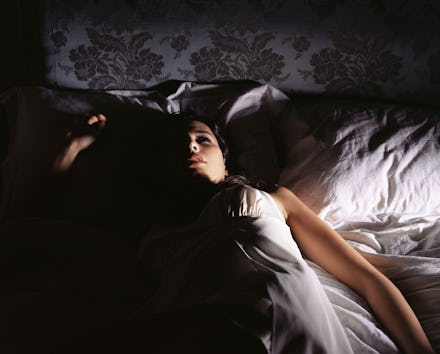Procrastination is Leading to Something Terrible for Your Health

The good news: If you are regularly sleep-deprived, you're not alone. People need seven to nine hours of sleep each night to function properly, yet 40% of Americans surveyed by Gallup in 2013 reported getting six hours or less. The Centers for Disease Control and Prevention recently declared the problem of insufficient sleep a "public health epidemic."
The bad news: There's new evidence to suggest that the reason for our communal failure to get enough shut-eye is procrastination. Researchers at the University of Utrecht found that people who didn't get to bed when they intended usually failed to sleep because they became consumed in doing other things — like watching another episode of Game of Thrones — instead.
Most of the sleep procrastinators who participated in the study, published in the journal Frontiers in Psychology, were procrastinators in other areas of life, too. In addition to frequently putting off sleep, they reported also regularly stalling on academic or work-related tasks.
Here's where it gets interesting: While researchers have extensively studied procrastination as it relates to putting off chores or schoolwork, they haven't yet looked seriously into what happens when we delay health-related tasks. These sorts of activities, researchers said, could include everything from sleeping to showering or spending time with friends.
"We're shifting to a 24-hour-a-day, seven-day-a-week society, and as a result we're increasingly not sleeping like we used to," the University of British Columbia's Najib T. Ayas, who was not affiliated with this study, told the Washington Post in 2005. "We're really only now starting to understand how that is affecting health, and it appears to be significant."
Getting too little sleep — especially when it happens consistently — can have serious health consequences, from bloodshot eyes to quadrupled stroke risk. A CDC survey found that of those who get less than seven hours of sleep on average each night, 38% said they were tired enough to fall asleep in the middle of the day in the past month while 5% admitted to dozing off behind the wheel.
In her study, University of Utrecht's Floor Kroese surveyed 177 people that she recruited with Amazon's Mechanical Turk. Kroese asked all of them a series of questions about their sleep behavior and their inclination to procrastinate. In order to determine whether participants were sleep procrastinators, she asked them to gauge their level of agreement with statements such as "I go to bed later than I had intended," and "I easily get distracted by things when I actually would like to go to bed."
Beyond discovering that sleep procrastination is fairly common, Kroese also discovered that those who delay going to bed get less sleep and are more tired during the day.
While her conclusions might seem obvious, Kroese's work is an important reminder that we should treat sleep as we would any other task: If we don’t prioritize it, it doesn't happen.